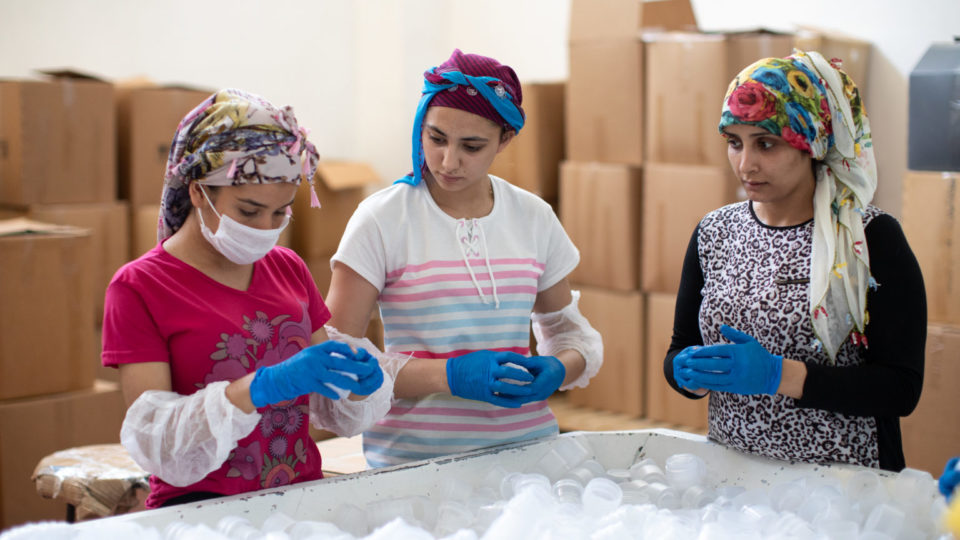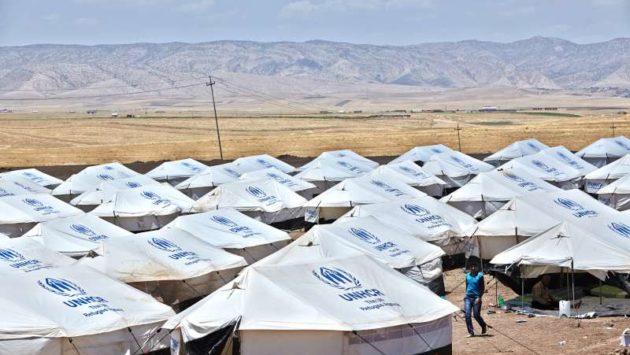Gender-Specific Training Helps Women Entrepreneurs in Vulnerable Economies
why do we need gender-specific entrepreneuship programs?
The question is posed by the economist Sara Cantillon, director of the Centre for Economic Justice and a professor of economics and gender at Glasgow Caledonian University’s Glasgow School for Business and Society.
The answer is that female entrepreneurs face several difficulties with different gender-specific dimensions, including access to finance, access to specific education programs, skill mismatches of women in employment, and lack of business opportunities for women entrepreneurs.
Professor Cantillon has been working with SPARK to develop a gender-sensitive entrepreneurship curriculum for a training program the Dutch nongovernmental organization is offering in collaboration with UN Women, the United Nations’ organization dedicated to gender equality and the empowerment of women. The program’s goal is to offer regional support to women entrepreneurs in Europe, Central Asia and the Middle East whose businesses are vulnerable to the impacts of Covid-19. (See a related article, “Job Creation Efforts in the Middle East Hit a New Snag: Covid-19.”)
The training has seven e-learning and blended-learning modules on gender equality, women’s economic empowerment, business development skills, and sustainable livelihoods in underdeveloped and/or developing countries.
“I am truly delighted to have had the opportunity to work with SPARK in developing their training modules on entrepreneurship,” says Cantillon. “There is minimal help available to women entrepreneurs in regions affected by crisis, conflict or displacement. SPARK’s innovative work in this area is inspiring, especially in how they open up possibilities for women, vulnerable groups and young people to enter the labour market or access pathways to employment as entrepreneurs.”
Currently, 65 women are enrolled in the five-week intensive online course. Afterwards, selected entrepreneurs will have access to four-week mentorship sessions.
Improving women’s employment has already become a vital priority for many of the targeted countries, which include Lebanon, Jordan, Turkey, and Iraq, including the Kurdistan region.
Iraq, Including the Kurdistan Region
In Iraq and its semiautonomous Kurdistan region, an under-developed private sector, domestic pressure, and social prejudices limit women’s ability to break into employment.
According to a demographic survey by the government of the Kurdistan Region of Iraq, only 15 percent of working-age women are in the labor force, one of the lowest rates in the world. Up to 75 percent of employed women in Kurdistan work in the public sector. Therefore, it is rare to see women entrepreneurs in the region.
The regional government has adopted several policies to protect and promote women’s employment, including the provision of maternity leave, the prohibition of discrimination against women, and efforts to increase female participation in the public sphere. (See a related article, “Gender Studies Center in Iraqi Kurdistan Challenges Traditional Ideas.”) the government has also designed several reconstructions and poverty-reduction strategies that aim to rebuild agriculture, education, and health sectors, each of which faces immense setbacks as a result of the recent conflict. This indicates that these sectors have the potential to continue providing employment for women in the years to come.
Training Women Entrepreneurs
Women entrepreneurs are still an untapped source of business and job creation in these countries and other vulnerable economies, including Armenia, Azerbaijan, Georgia, Kosovo, Kyrgyzstan and Moldova.
Following the advice of Professor Cantillon, SPARK and a local partner, Viveka, are training women entrepreneurs in these countries, using gender-sensitive modules, with female guest speakers who are experienced entrepreneurs.
“This program has played a stimulatory role in our efforts to transition our business idea into an actionable plan,” says Ebru Borgman, a Turkish entrepreneur and founder of Terra Enterprise, an organic textiles company. “Sharing this opportunity with other women entrepreneurs, learning more about start-up oriented marketing and presentation, strategy, and business plans as well as our mentors’ guidance catered towards our specific needs and questions have especially been beneficial to us.”
In April, UN Women held the online Women’s Entrepreneurship Expo 2021, where hundreds of women entrepreneurs from 12 countries joined interactive and co-creation hubs, idea-generation sessions, business-pitching labs, and a showcase marketplace of women-owned business ventures, networking and peer-learning opportunities. Some entrepreneurs received mentoring support on how to design, refine and test prototype business plans, and how to pitch their business ideas. They also had the chance to connect with national, multinational and global companies, business investors, mentors and other partners.
Sustainable economies and social development depend on women’s social, political and economic empowerment. Social enterprises have an important role to play in this. By bringing women entrepreneurs together, SPARK and its partners encourage coordinated action on gender-based policy, education and access to funding, which help each country to achieve the United Nations’ sustainable development goals.




